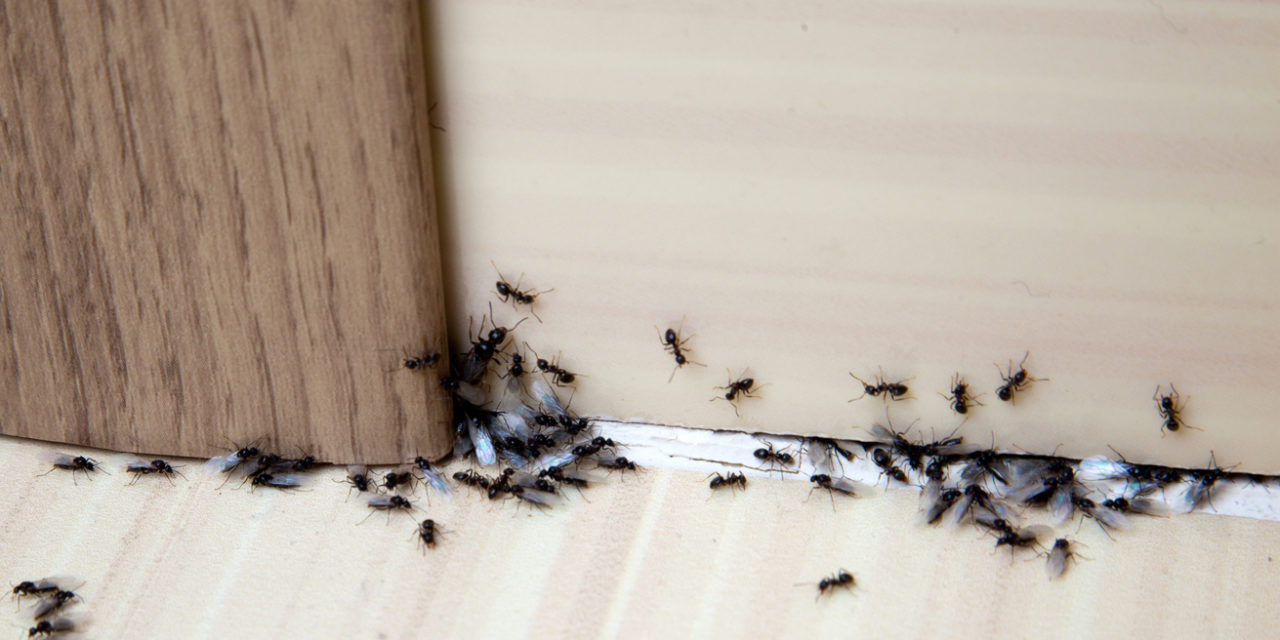When I noticed some unsightly mounds in my pink chintz thyme groundcover, I found they were swarming with ants. Yuck. I don’t ordinarily try to suppress ants, but I didn’t want my perennial garden littered with ant hills. I was determined to rid that part of my landscape of these pesky mound builders.
Colorado, my home state, is home to at least seven kinds of ants, including field, cornfield, carpenter and pharaoh ants. They are all social insects with underground nests and one or several queens. Most ants are female, wingless workers. Occasionally you might see winged ants. These are mating ants. The males die soon after they mate, and a queen will shed her wings once she is fertilized.
Ants are ubiquitous and far more beneficial to our gardens than damaging. They feed on other insects, including pests, and their tunneling helps aerate the soil and recycles organic matter. A campaign to rid your garden entirely of ants is not only pointless, but also a bad idea. But spot treatment to preserve your garden’s appearance might be needed. And there’s little danger that spot treatment will make a dent in the local ant population.

Ant action standing.Ant bridge unity team
Most non-pesticide approaches don’t work, though. Ant nests can be several feet underground. Boiling water poured on a nest probably won’t be hot enough to damage the nest by the time it penetrates. Contrary to garden myth, corn meal doesn’t make ants explode. And you can’t drown ants: They can live submerged for several days.
Spray-on pesticides only kill the ants they touch. The best approach to eliminate a colony is probably toxic bait. You must get the ants to carry a toxin into the nest, where the queen and all the other ants will ingest it. A slow-acting toxin, such as boric acid (Borax), mixed with jelly, honey or peanut butter can be set next to tunnel entrances to wipe out a colony. This is not an instant fix. It might take several bait traps and a couple of weeks to finish the colony off. You can buy traps or make your own. But don’t sprinkle Borax directly on soil or let pets and children near it.
When you accidentally step on an ant colony, and the creepy critters cover your shoes, remember they do more good than harm. Only go after these fascinating creatures when it is absolutely necessary.

 People often worry that anys in the garden mean ants in the house. Photo Credit: Cherkas (iStock)
People often worry that anys in the garden mean ants in the house. Photo Credit: Cherkas (iStock) 



Comment on: Should You Get Rid of Ants in the Garden?